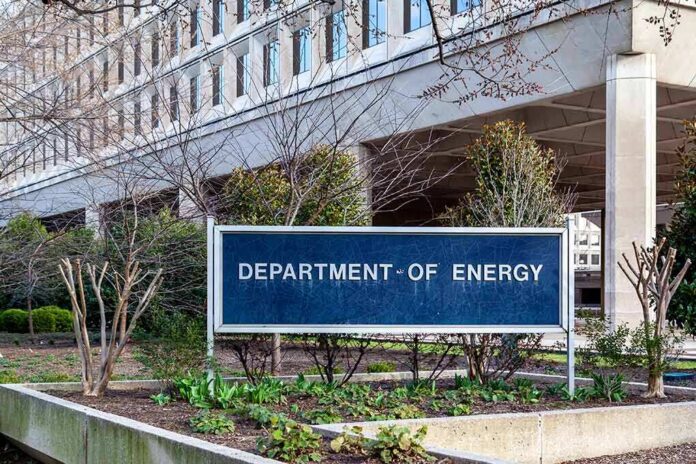
The Trump Administration rescinded climate grants from the Rocky Mountain Institute, revealing shifting priorities in U.S. energy policy.
Quick Takes
- Trump’s Department of Energy canceled climate grants to the Rocky Mountain Institute
- Rocky Mountain Institute faced scrutiny over connections with China and energy policy positions
- Trump issued orders reversing Biden-era climate initiatives and withdrew from the Paris Agreement
- Critics fear negative impacts on clean energy progress due to grant cancellations
Shift in U.S. Energy Policy
The Department of Energy under President Donald Trump rescinded climate grants previously allocated to the Rocky Mountain Institute (RMI) by the Biden administration. This decision is part of a broader effort to refocus U.S. energy policy. Critics argue that this could hinder progress in clean energy initiatives. The grants included $5.3 million for green technology retrofitting in Cambridge and $1.5 million aimed at electric vehicle research on “equity.” The Institute has taken a significant role in advocating for ridiculous policies like gas stove restrictions.
The rescinding of the grants corresponds with Trump’s recent executive orders which target Biden-era climate agendas. The administration is pushing for enhanced energy efficiency and reduced dependence on foreign energy. This marks a continuation of Trump’s approach, emphasizing American energy dominance. This raises questions about future U.S. involvement in international climate agreements like the Paris Agreement, from which the U.S. began the process of withdrawal.
JUST IN: @SecretaryWright cancels Biden grants to the Rocky Mountain Institute, the CCP-linked think tank that helped lead Biden’s war on gas stoves:
“The agency…is expected to rescind a wide range of previously awarded climate-related grants and loans.”https://t.co/84tpRRym55
— Fmr. Rep. Jason Isaac (@ISAACforEnergy) April 2, 2025
Political and Environmental Dynamics
RMI’s ties with Chinese entities have drawn congressional interest, highlighting the intricate political and economic dimensions of global energy discussions. Ben Dietderich from the Department noted, “The Department of Energy is focused on delivering on President Trump’s pledge to lower energy costs, unleash American energy dominance, and promote the more efficient use of taxpayer dollars”. A national energy emergency declaration accompanies attempts to unravel Biden’s climate directives.
Amid these changes, the Environmental Protection Agency, led by Administrator Lee Zeldin, terminated $20 billion in climate grants. This has sparked legal challenges from nonprofit sectors affected by the funding freeze. Lawsuits filed by organizations like Climate United Fund spotlight the tensions between environmental aspirations and administrative strategies.
Implications for Clean Energy
President Trump’s decision to minimize U.S. involvement in global climate initiatives, including movements like exiting the Paris Agreement, poses potential risks to clean energy developments and international relations. The RMI grants’ rescinded status illustrates a broader trend toward prioritizing traditional energy sectors over commitments to carbon reduction and climate resilience.
As shifts in policy unfold, debates over the environmental future continue. Proponents of renewed American energy independence praise the administration’s stance. At the same time, environmental advocates and some legislators expressed concern over potential setbacks to climate responses amid increasingly evident environmental challenges worldwide.
Sources:
- Trump’s EPA ends Biden-era climate grants worth $20 billion | AP News
- Trump orders U.S. withdrawal from Paris Agreement, revokes Biden climate actions : NPR
- Trump Cancels Biden Grants to China-Tied Think Tank Behind War on Gas Stoves












